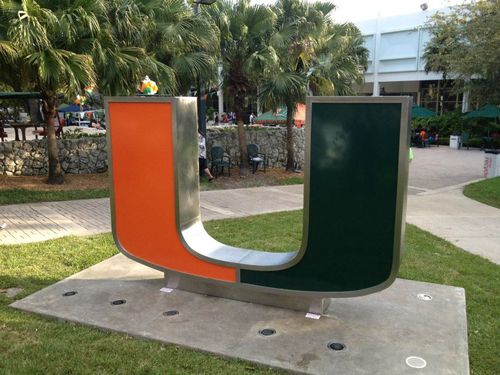Explore Cognates
- Keywords
- Course Names
- Course Codes (ENC 101)
The Cognates Program comprises the Areas of Knowledge component of the University of Miamis framework for General Education. Students fulfill the Areas of Knowledge requirement by selecting and completing a cognate in the three areas of the university curriculum:
1. Arts & Humanities (A&H)
2. People & Society (P&S)
3. Science, Technology, Engineering & Mathematics (STEM)
A cognate requires a minimum of at least three courses, for at least nine credit hours. A major, minor, thematic cognate, or an individualized cognate will satisfy the requirement.
You choose your cognates. Your interests, goals, and curiosities should guide your decision. You may select more cognates than the required three. The title of each thematic cognate you complete will appear on your transcript. Completed individualized cognates will appear as "Individualized Cognate."
Thematic Cognates: The cognate search engine lists the thematic cognates currently available and lets you search for cognates based on their areas of knowledge, features, courses, and keywords. Each thematic cognate is administered by an academic department or program, known as the RAU (Responsible Academic Unit), that devised and sponsors the cognate. If you have questions about a thematic cognate or wish to propose a substitution for a course in it, you should consult the RAU responsible for the cognate. Your academic advisor can help you make the appropriate contact.
Individualized Cognates: The cognate search engine can help you shape a program of learning that is broad, coherent, exciting, substantive, and uniquely your own. You can utilize the cognate search engine to explore thematic cognates as well individual courses that have been approved to be utilized in individualized cognates. A searchable list of courses eligible to be used in individualized cognates is available here.
By fusing the University's intellectual strengths with your distinctive interests, the Cognates Program lets your educational passions and strengths drive your learning. Your education will matter most, and you will do your best college work, if you are engaged with and by what you study.
Cognate, a major, minor, thematic cognate, or individualized cognate containing a group of at least three courses, for at least nine credit hours.
Thematic Cognate Substitution Request, a student may request to substitute a course in a thematic cognate for one not listed as part of that cognate. The student should submit their request to the Responsible Academic Unit (RAU) sponsoring the cognate for their approval. Once approved, the student submits the approval to their school/college for processing. (Substitution Request Form)
Student Proposed Thematic Cognate, students may propose a thematic cognate to a Responsible Academic Unit (RAU). The proposal should include a set of at least five generally accessible courses that exhibit a common theme or focus. If the faculty in the RAU concur with the students’ proposal, the RAU will submit it to the appropriate school and university committees for adoption as a regular thematic cognate available to all students.


